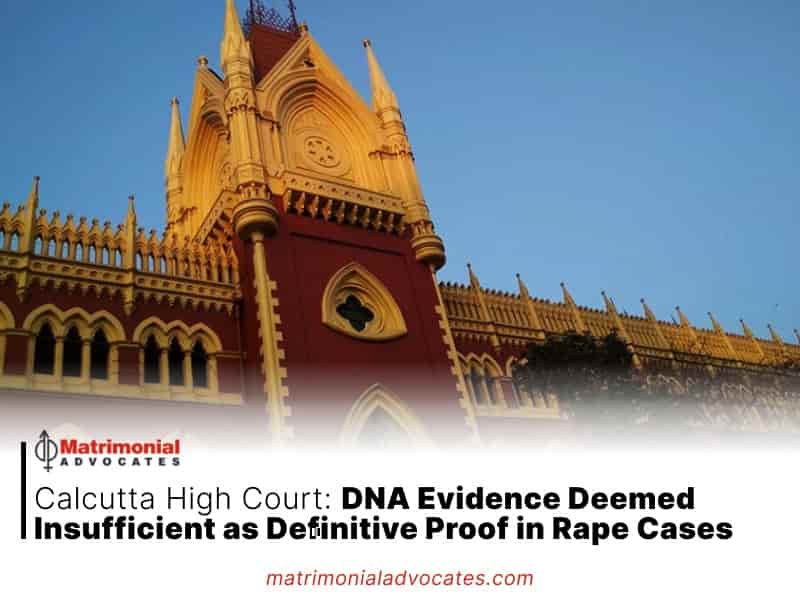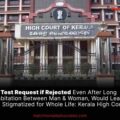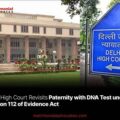
Therefore, single-judge Justice Ajay Kumar Gupta refused to discharge a rape accused even after the DNA report concluded that he was not the biological father of the victim’s child.
On Monday, the Calcutta High Court made a significant ruling, stating that solely relying on a DNA report is insufficient to conclusively prove rape. This decision came as the court refused to dismiss a man from a rape case, despite the report indicating he wasn’t the biological father of the victim’s child [Rabi Das @ Rabindra Nath Das vs State of West Bengal]. Justice Ajay Kumar Gupta, acting as the sole judge, noted that the evidence presented by the victim strongly indicated a case of rape or penetrative sexual assault by the defendant.
“The DNA analysis report cannot be said to be the conclusive evidence regarding rape and can only be used as corroborative evidence in the trial and it is not clinching evidence,” the Court said.
The Court recognized that the DNA report from the Central Forensic Science Laboratory indicated the petitioner wasn’t the biological father of the female baby. Nevertheless, this finding alone cannot be grounds for acquitting the accused.
“Only on such a scientific report, the accused cannot be discharged from a case where direct evidence is apparent from the Case Diary. Allegation of rape may be proved by substantive evidence and to prove substantive evidence, leading of evidence from both the sides are essential. Accordingly, at this initial stage, the accused cannot be discharged only on the basis of scientific report i.e. DNA Report,” Justice Gupta held.
The Court reviewed a revision application lodged by the petitioner contesting the decision of a specialized court assigned to cases under the Protection Of Children from Sexual Offences Act (POCSO Act).
The specialized court in Purba Medinipur, through a ruling dated January 16, 2017, declined to dismiss the petitioner from the rape case.
Relying significantly on a DNA report indicating he wasn’t the child’s biological father, the petitioner sought exoneration.
However, the specialized court reasoned that while the petitioner might not be the child’s biological father, it doesn’t necessarily absolve him of the alleged rape.
The court emphasized the necessity for evidence from both parties, cautioning against premature discharge based solely on the DNA report, especially considering the victim’s accusation of repeated forcible rape on various occasions.
Subsequently, the accused appealed to the High Court.
In his ruling, Justice Gupta highlighted that the victim, a 14-year-old girl at the time, was discovered to be seven months pregnant only after falling ill, as reported by her parents.
Following this revelation, the girl disclosed to the police that the petitioner had forcibly engaged in sexual intercourse with her multiple times, accompanied by threats of severe consequences.
“All these facts established a prima facie case of rape or penetrative sexual assault as well as threat perception against the present petitioner. In the light of above, this Court finds the rejection of prayer for discharge of the accused person only on the ground that he is not the biological father of the female baby as per the DNA Test Report collected from CFSL, is correct, legal and valid. There is no error in jurisdiction or law. Thus, the revisional application has devoid of merits,” the Court said while refusing to discharge the accused.





